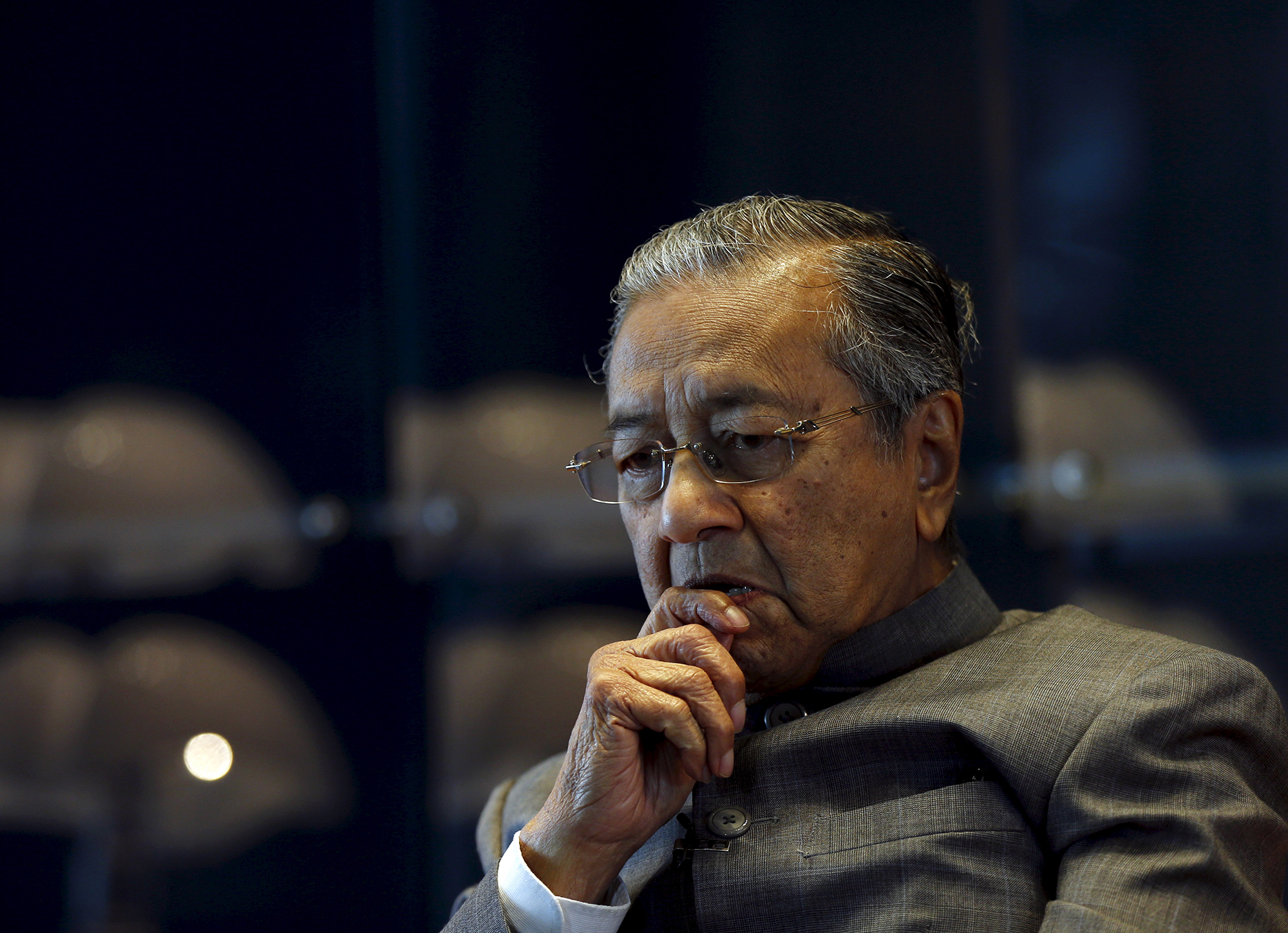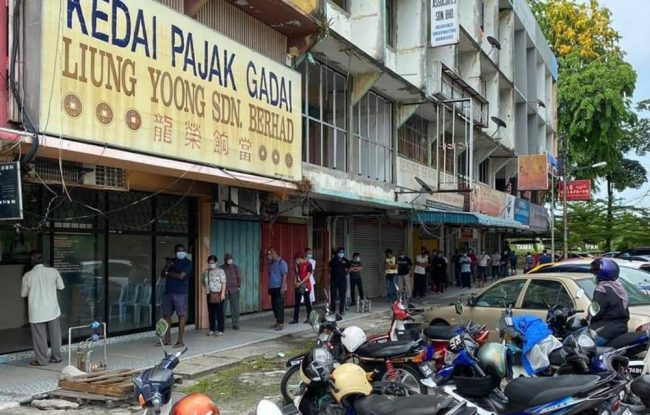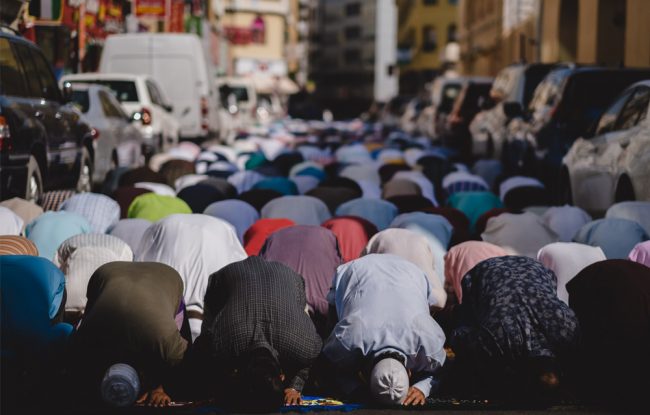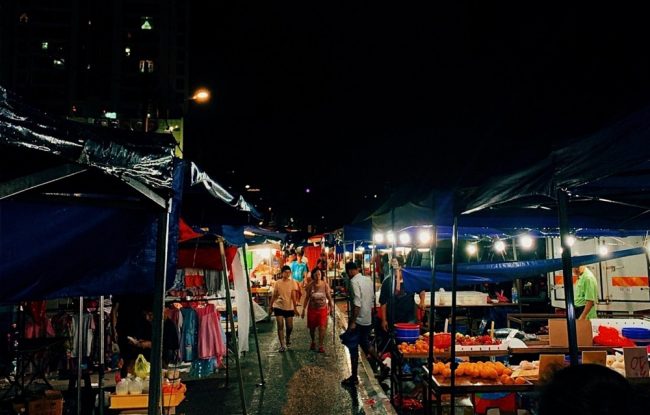Politics is an old man’s game, and in Malaysia, it appears to be exclusively so. Most top leaders in Malaysian politics are well over the retirement age, from both ends of the political spectrum. And then there’s Mahathir. Approaching a century old, Mahathir has been active in politics since before Malaysia’s independence, with the climax of his career as the longest-serving Prime Minister. His career did not shy away from controversy, and he was accused of being a dictator, manipulative, etc. He stepped down as Prime Minister of Malaysia in 2003. But even after his retirement, he maintains to be a key and controversial figure in local politics; commenting on current issues and the state of the nation head-on in his trademark caustic way. It would seem that he’s entering another pinnacle in his career post-premiership, as the new leader of the opposition.Nobody knows the real reason why Mahathir is back (or still) in politics. Some say it is to protect his legacy, some say it is to pave the way for his son’s political career, which is in limbo after being sacked from the Chief Minister of Kedah’s position. There are many who say he is truly honest and sincere in setting the country back on the right path. For the opposition coalition, Pakatan Harapan (PH), and their main supporters from civil society groups such as Bersih, Mahathir joining the coalition signals two things: they couldn’t decide on a leader after the absence of Anwar Ibrahim, and they lack the confidence in being able to perform better than the previous election.
Crisis in Leadership
Ever since Anwar Ibrahim was put back in jail, the opposition coalition have been facing a major leadership crisis. The coalition of civil society organizations and politicians, connected by their trust and belief in Anwar, is fraying by the day. Problems have risen, such as the intense disagreement between DAP and PAS, the internal fighting in PAS that resulted in an exodus and the creation of Parti Amanah Negara (AMANAH), and of course the very public quarrels within PKR’s leadership, to name a few.
Then there was the shadow of the previous General Election of 2013. The opposition coalition, known as Pakatan Rakyat (PR) at the time, won more than 50% votes, but failed to takeover the Parliament. More importantly, they failed to garner majority support from the Malay community. This was the straw that broke the camel’s back, so to speak – how could they take over Putrajaya and rule this country sans Malay support?
This is where Mahathir comes in. Desperate to get someone who can hold the remaining opposition coalition together, and at the same time trying desperately to appeal to Malay voters, Mahathir became their saviour. His background, experience and statesmanship is the perfect recipe for the opposition’s goals. A new coalition was announced in 2015 – Pakatan Harapan (PH) – with Mahathir leading the pact.
While this has been claimed as a pragmatic step by the opposition coalition for the coming General Election, it also signals the unhealthy culture of personality-driven politics that continues to dominate the Malaysian political scene. For many opposition supporters, especially the youth, a vote for the opposition also meant a vote against the personality-driven, patronage culture that is embedded in local politics. PH’s new strategy is considered ‘bonkers’ by Malaysia’s youth, and serious questions on their viability as an alternative force of change have risen.
Whether Mahathir can galvanize Malay support towards PH is something that is yet to be proven. What is already happening, however, is the split among PH supporters. The idea of Mahathir joining the opposition, let alone leading them, doesn’t sit well with many people. This is proven by the fact that up until now PH machinery still has to convince their supporters that having Mahathir is a wise decision and strategy on an almost daily basis. For certain, this does not bode well for PH. They are spending more time and energy on persuading their members instead of promoting their manifestos and future plans for the country.
When Will The Old Man Just Stay Home?
The protest towards Mahathir and his new old crew, the Parti Pribumi Bersatu Malaysia, is also manifested through the recent call to spoil votes. This is something that has happened during previous elections, but the call to spoil votes was never really picked up by anyone. However, this time there are more serious talks among the youths. The #Undirosak movement is gaining momentum, and is frightening the Opposition parties. The reality is that a huge chunk of opposition supporters are not happy with Mahathir’s presence and they have only themselves to blame.
In the past few elections, the opposition coalition have been focused on unseating the ruling coalition, Barisan Nasional (BN), at all costs, on the pretext that they are the better candidate to run the country. As flimsy and turbulent the coalition are, Malaysians long for a change and saw them as a viable option than the current ruling coalition. This is mostly due to the fact that the opposition politicians are not guilty of the crimes that the ruling party are accused of committing.
But with Mahathir and his crew in the picture, the situation is different.
Voters who are looking for a change do not see that Mahathir will bring the change needed. This is the dilemma the voters are in at the moment. As aptly put by the columnist Hafidz Baharom, Barisan Nasional and Pakatan Harapan are like Samsung and Apple. “Apple runs on Samsung chips, and both models using the same batch of chips burst into flames due to a defect.”
Machiavellian Is His Operative
The question on Mahathir’s motivation still lingers. It is important for us to remember that instead of joining the existing political parties within the opposition coalition, Parti Keadilan Rakyat (PKR) or Parti Amanah Negara (AMANAH), Mahathir set up his own party – a Malay political party where all the key members are disgruntled UMNO members. BERSATU, as what the party is informally known as, can be seen as just another UMNO. Why did he do this? Does he have no trust towards the other parties? Does he think that by creating this new, UMNO-esque party, he can garner the much needed Malay support for the opposition? Again, we can only speculate. However, what he can do is something that we can ponder on. By being independent of other parties, Mahathir can operate on his own, collaborate and make deals with other groups. He can even leave the opposition coalition post-election, if it’s favorable for him. In Malaysian politics, Mahathir is the father of U-turns.
If this were to happen, it will have an impact that will last beyond the 14th General Election. It will be more than just business-as-usual, status quo prevails. In a study done by IMAN Research, Malaysian youths have a high level of cynicism towards politics in the country. Their trust towards the political process have dropped after the previous General Election. At the same time, youths are feeling more disempowered and lack ability to make any changes. This recent development is only fueling into that perception, which will lead to further disengagement of youth in the political process.
The cynicism and apathy come as no surprise when all political contenders have made very little sustained effort to sell their vision of governance and progress (despite large-scale campaigns ala TN50, or Gabungan Kiri’s Manifesto, PH’s 2018 Shadow Budget). Beyond the stock pieties on good governance, equitable development, and shariah-compliance, it is unclear what exactly is the vision that voters are supposed to vote for this coming election, that would shift away from the country’s still-communal politics.
Mahathir isn’t the only one among the old guards who have not been able to position themselves beyond communalism and political patronage, the same line of thinking that affects younger Malaysian politicians. This arguably could be in response to the electorate’s wish for change but only in doses that they are comfortable with, but it could also be a sign of the lack of desire for a total political change in the society.
For the upcoming General Election, the Malaysian voting population is expected to make a leap of faith and effectively choose between an opposition coalition increasingly driven by disgruntled former UMNO members, yet newly repented, and startled UMNO members who are trying their level best to protect and strengthen their hold on power. The title fight between Najib and Mahathir, grows increasingly ugly and overshadows the fresh and progressive ideas being expressed on all sides of the political field. This is something ironic, as Malaysia’s elections is a parliamentary one, and theoretically to choose the party that the electorate feels best represents their interests. Yet the fight between personalities seem more in line with presidential elections, and basically forcing voters to select the candidate (and by extension party) that will bring less damage to the country.
The repercussion of this pickle that we’re in, is a high possibility of low voter turnout. Malaysia have always enjoyed high voter turnouts, with nearly 85% of registered voters came out to vote in the last General Election. Looking at the development of the current climate, this might not happen. As a result, as analysts have pointed out, we might see the ruling coalition regaining a two-third majority in the Parliament. And, whichever side of the political spectrum one is at, this is not a good development for the country.
Badrul Hisham Ismail is the Program Director at IMAN Research.
This is the opinion of the author and does not necessarily represent the views of IMAN Research.




